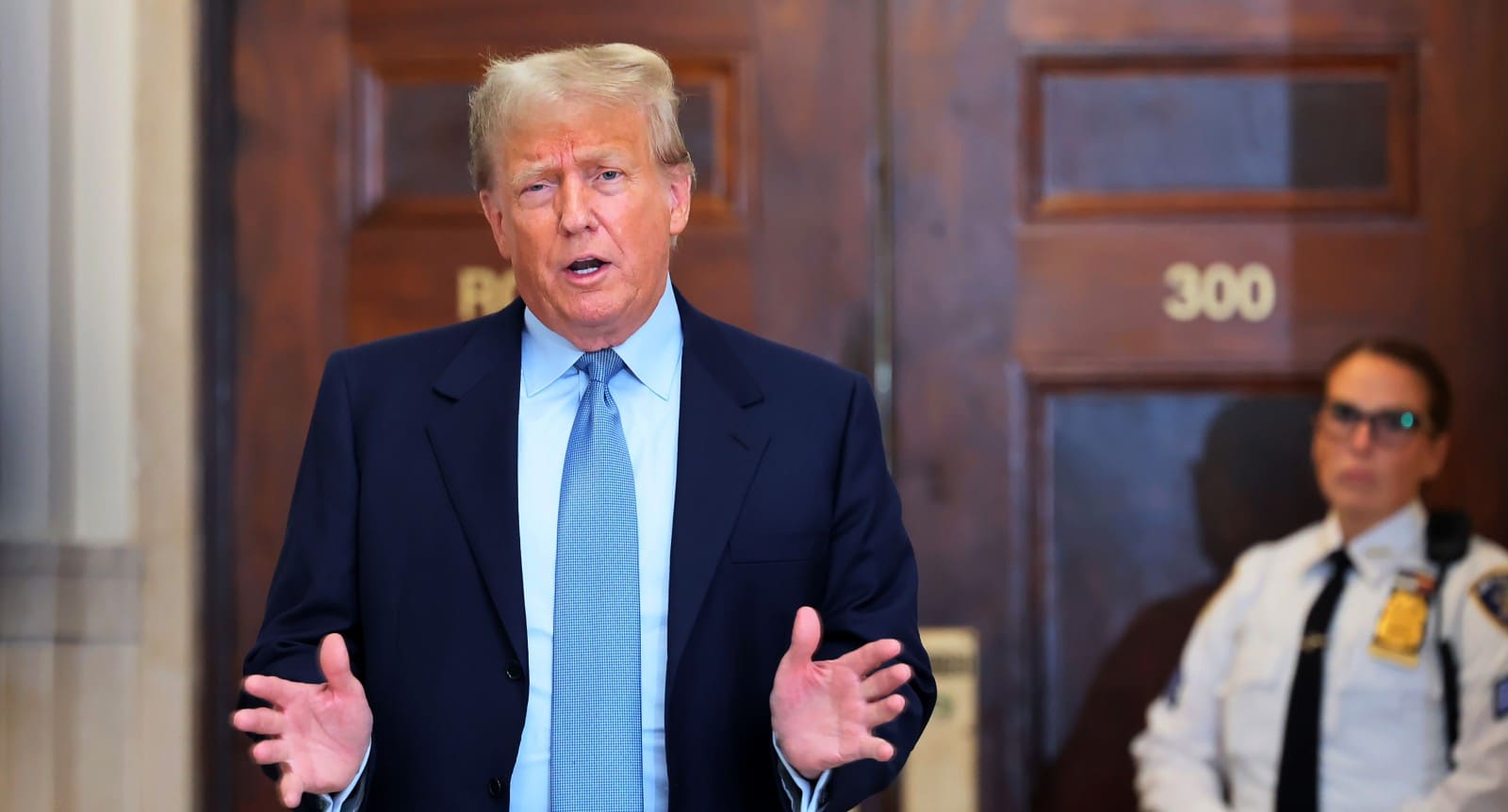OPINION: This article may contain commentary which reflects the author's opinion.
The court may reimpose speech restrictions on former President Donald Trump prior to the 2024 Republican presidential primary and possibly throughout the general election, according to audio of a contentious exchange between the former president’s attorneys and the federal appeals court on Monday.
An appeals court signaled on Monday that it may have some good news for former President Donald Trump after hearing arguments regarding a lower federal court’s imposition of a gag order in regard to his so-called ‘election interference’ indictment.
During a two-and-a-half-hour session, a three-judge panel heard arguments from Trump’s attorneys and federal prosecutors seeking to have the order reimposed after it was temporarily lifted during the appeals process. According to Fox News, “the appeals court judges appeared skeptical of both sides on whether to reinstate an order from a trial judge that prevented Trump from making inflammatory comments against prosecutors, potential witnesses, and court staff.”
Cecil VanDevender, a lawyer with Special Counsel Jack Smith’s office, told the panel that the order is necessary so as to prevent intimidation and threats against participants in the case in which the former president has been accused of illegally scheming to overturn the 2020 election.
John Sauer, a lawyer for Trump, argued that the upper court should completely revoke the order that U.S. District Judge Tanya Chutkan had issued.
The judge and Trump’s attorney, D. John Sauer, can be heard arguing on the recording about Trump’s ability to speak out against specific political rivals on social media.
The judges are also at a loss about how to draft a gag order that allows Trump to continue defending himself during the campaign.
As the three judges on the panel deliberated whether to reinstate a trial judge’s order prohibiting Trump from making remarks critical of prosecutors, possible witnesses, and court employees, they questioned lawyers with skepticism and occasionally aggression.
Because his legal issues coincide with his bid to unseat President Joe Biden from the White House, Trump has labeled them as politically motivated and called them “election interference.”
The judges debated how to strike a compromise between an order that doesn’t infringe on Trump’s First Amendment rights and a long list of potential outcomes that might occur in the coming months.
However, in order to preserve “the criminal trial process and its integrity and its truth-finding function,” the judges made hints that they would reimpose the gag order.
Listen to a particular exchange Sauer and Judge Patricia Millett had that was criticized for showing bias.
Listen below:
— Julie Kelly 🇺🇸 (@julie_kelly2) November 20, 2023
The stakes are high regardless of the result because of Trump’s enormous public platform on social media and during the campaign, as well as the paucity of legal precedent governing the restriction of political candidates’ free speech, much less a front-runner for the presidency.
The majority of the questions during Monday’s nearly two-and-a-half-hour arguments were directed at Sauer, who argued that the gag order was an unconstitutional muzzle and was unduly vague.
“The order is unprecedented, and it sets a terrible precedent for future restrictions on core political speech,” Sauer said. He described it as a “heckler’s veto,” unfairly relying on the theory that Trump’s speech might someday inspire other people to harass or intimidate his targets.
“They can’t draw a causal line from any social media post to threat or harassment when we have wall-to-wall media coverage of this case,” Sauer told the court.
The court responded to those points coolly.
Judge Brad Garcia pushed Sauer to justify the court’s inaction prior to Trump making speculative remarks disparaging prospective witnesses or other individuals.
“This is predictably going to intensify as well as the threats, so why isn’t the district court justified in taking a more proactive measure and not waiting for more and more threats to occur and stepping in to protect the integrity of the trial?” Garcia said.
Sauer contended that prosecutors could not prove a direct line between Trump’s rhetoric and actual harm.
Prosecutors cited that episode in their original gag order request, saying Trump’s posts had “already influenced the public.”
Cornelia Pillard, a different judge hearing the arguments, questioned Sauer acerbically about whether he thought any limitations on Trump’s speech were permissible, telling him: “I don’t hear you giving any weight at all to the interest in a fair trial.”
Judge Millett winced at Sauer’s claim that Trump was only making standard political remarks.
“Labeling it core political speech begs the question if it’s political speech or speech aimed at derailing the criminal process,” she said.
